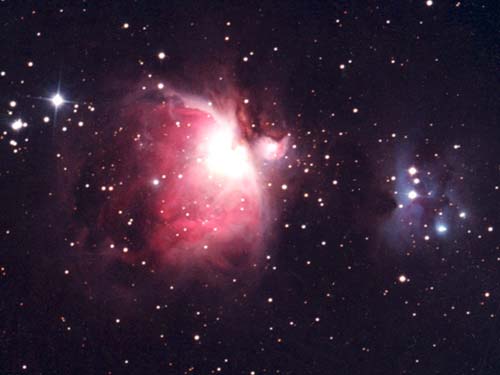Program
You can find the program from the 2005 Summer school and the 2006 Summer school
1) Rotational spectroscopy (Thomas Giesen/Cologne)
Abtract:
Most of the
more than 130 interstellar molecules have been identified by their
rotational spectra recorded at mm and submm wavelength. An introduction
to current experimental techniques aiming at the identification of molecules
with complex spectra is given.
2) Molecular Beam Methods (Andre Canosa/Rennes)
Abtract:
Preparation of cold molecules
in the laboratory is often related to adiabatically cooled jets and molecular beams.
Preparation of such beams and application to astrophysical questions are discussed.
3)Crossed beam scattering (Hans ter Meulen/ Nijmegen)
Abtract:
Most detailled
information on collisional processes is obtained in crossed beam experiments.
The concepts of molecular collisions and applications under single collision conditions
are presented.
4) Action spectroscopy (Jos Oomens/Rijnhuizen)
Abtract:
One of the most sensitive spectroscopic
techniques which is currently also applied in various forms to astrophysically
relevant molecules is described and applications to polycyclic aromatic hydrocarbon (PAH)
5) Radio frequency traps (Roaland Wester/Freiburg)
Abtract:
High order RF traps are
used to study collisional systems at low temperatures. Application of trapping
techniques to negative ions, which have been detected in space recently, is
described.
6) Deuterium Chemistry (Oskar Asvany/Cologne)
Abtract:
Deuterium fractionation is
studied in RF traps to derive a tool for understanding the coldest environments in space.
7) Surface chemistry and ices (Helen Fraser/Strathclyde)
Abtract:
Low temperature
processes happening on grain surfaces or in ices accomodated on interstellar
grains. The basics and the role of these processes are presented.
8) UV-vis spectroscopy (John Maier/Basel)
Abtract:
Unravelling the origin of the
diffuse interstellar bands (DIBs) is another central aspect of laboratory
astrophysics. Current efforts to explore experimental techniques for a systematic
search for the molecules responsible for the DIBs are described.
9) Science with SOFIA (Carsten Kramer)
Abtract:
This lecture will summarize the key science for SOFIA and discuss how these translate into science requirements and how that drives the development of the observatory and instrument requirements.
10) SOFIA as a project (Hans Peter Roeser)
Abstract:
Based upon the SOFIA experience, this lecture will describe how scientists can take a science idea, devise a program/project, build support for it in the community and guide it to fruition, including dealing with the myriad of scientific compromises that are encountered when scientific dreams meet engineering reality.
11) The SOFIA Project (Dietmar Lilienthal (TBC))
Abstract:
This lecture will focus on the project aspects of a program. What does it take to run a space project, running the gamut of budget/schedule constraints, dealing with international partners, the invariable delays, and other aspects that happen in the development phase of a typical project.
